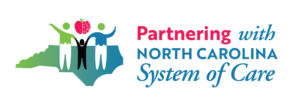Strengthening the Connection Between Schools and Behavioral Health
Improving Students’ Mental Health
A recent survey of high school students by the United States Centers for Disease Control and Prevention (CDC) found that 44 percent of respondents had experienced persistent feelings of sadness or hopelessness.
Addressing this crisis will take coordination among schools, behavioral health providers, community groups and families.
To help increase this needed coordination, the NC Department of Health and Human Services (NC DHHS), in partnership with the Department of Public Instruction, awarded i2i a grant to strengthen school districts’ connections to Systems of Care (SOCs).
Where these connections are strong, students’ access to treatment, and their overall mental health, improve.
Building and Strengthening Systems of Care for Students
Meeting students’ growing mental health needs requires collaboration among school districts, behavioral health providers, community groups, and families. By working together, these partners can create a System of Care (SOC).
SOC is a nationally recognized framework. It helps stakeholders build impactful partnerships to provide individualized care and quickly identify available resources. Many communities across North Carolina have utilized a SOC collaborative model for nearly 20 years. During this critical time for mental health in young people, it is vital that all the right voices are brought to the table in a collaborative model
i2i’s Work
Through this NC DHHS grant, i2i has helped North Carolina school districts better connect with the resources utilizing System of Care principles. Several resources were developed from this initiative:
Webinars:
- System of Care
- Changes in Medicaid: Focus on Standard Plans
- Changes in Medicaid: Focus on Tailored Plans
Toolkit for School Systems and Behavioral Health Partners to Address Challenges
Resource Guide for School Systems
School District Convenings
